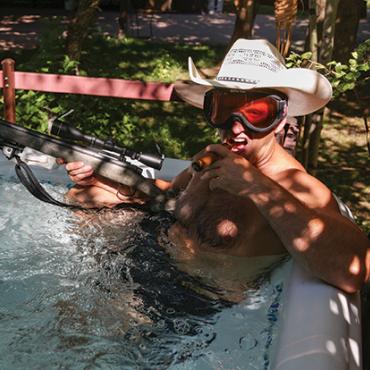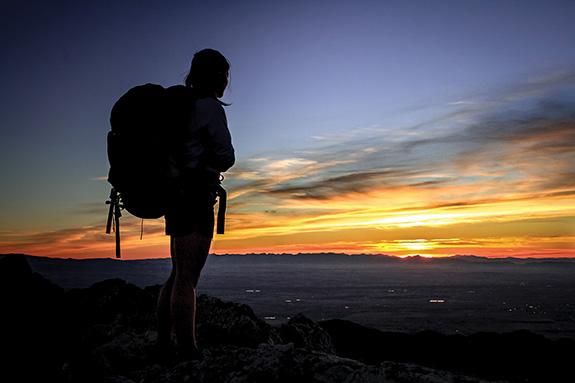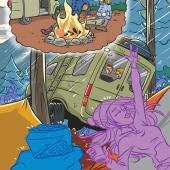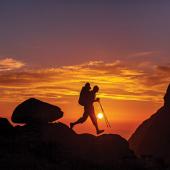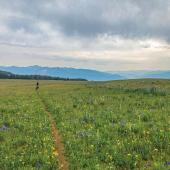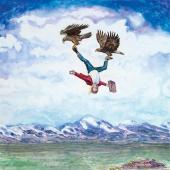Long Live Bozeman
Inside all of us is the spirit of adventure—a longing passed down through the ages, from the first man and woman who set off into the unknown, leaving behind the comfort and safety of the cave to climb a distant mountain, cross a great desert, or load a handmade boat and row toward an empty horizon.
This “lure of little voices,” as explorer Ernest Shackleton put it, speaks to us all, though we differ in our receptivity and in the degree to which we prioritize other interests, other whispers from both within and without.
What does not vary, however, is the benefit proffered by this call of the wild: a sense of freedom as one escapes the narrow confines of an ordinary existence. “The function of man is to live, not to exist,” wrote Jack London. “I shall not waste my days trying to prolong them. I shall use my time.”
Ol’ Jack would’ve liked Bozeman. We use our time here. Be it hiking, biking, paddling, skiing, or climbing, Bozemanites get outside and get after it, throwing caution to the wind and comfort out the window, all in the pursuit of that joyous feeling that stirs our souls and animates our lives. It’s infectious, this exuberant addiction—one hiker inspires another, one outing begets the next, until our collective animus revolves around outdoor recreation. Any given trail on any given day teems with people immersing themselves in beauteous nature, despite its discomforts and dangers—using their time, one and all.
Problem is, those trails are getting crowded. Bozeman’s not the sleepy little mountain town it once was. Downtown’s no longer quaint, and Big Sky is hardly “a place all your own.” Home prices have gone through the roof. There’s rush-hour traffic. No Trespassing signs get plastered up by overprotective landowners—human versions of those idiotic little dogs in parked cars that bark incessantly as you walk past. And perhaps most pernicious of all: McMansions, hilltop trophy homes on 10 or 20 acres—hulking, garish declarations of status, which even in their most artistic expression are little more than “elegant displays of greed,” as a friend once put it.
Yep, Bozeman is at a crossroads, and anyone who’s been here a while feels it: a sense of loss, a hollow feeling in the gut, a longing for that which is gone and gone forever. We don’t have a word for it in English, but the Welsh do: hiraeth. The Brazilians call it saudade. Our condition, it seems, is not unique.
And yet, somehow, despite these vicissitudes of time and progress, Bozeman’s untamed spirit yet lives. Close your eyes on a warm spring day at the Sourdough trailhead and you can feel it. It rides the wind down from the high peaks and across the melting ice of Hyalite, flowing into all those for whom that ancient longing still sings. It’s one of those little voices, luring us ever forward into the wild heart of Montana.
That voice spoke to the two college girls I passed last month, floundering up an ice-covered M trail in tennis shoes. As they slipped and fell, they laughed—at the shared struggle, at the joy of being out in nature challenging themselves, fighting through their innate human frailties.
No doubt that hike will lead, as it has for so many before, to another outing—this time longer, farther, deeper. Eventually they’ll climb Mount Baldy together, then Blackmore; they’ll share stories with other hikers and hear of other adventures; and then one day they’ll reach the top of Granite Peak, after a brutal two-day slog through the wilderness. Sweat-soaked and grimy, exhausted and exhilarated, they’ll smile and high-five atop Montana’s highest peak.
They’ll feel alive, reveling in a sense of freedom and accomplishment they’ve never known. They’ll be using their time—and it will have all started right here in Bozeman.
In monarchical societies, a traditional cry was heard ’round the kingdom at the changing of the guard: The king is dead. Long live the king! (Or queen, as the case may be.) Seemingly contradictory, this epanaleptic mantra is actually bilateral, a tight little dual-purpose panegyric—a tribute to the old leader and a hearty welcome to the new one.
So as we watch our once-tranquil Montana town grow into a bustling Montana city, let’s pause and listen to those little voices, to the beating of that wild Bozeman heart. Let’s raise our glasses—of delicious craft beer, mind you, not the tasteless swill of yore—and honor this town we love so much, that has given us so much, that encourages and challenges us to live, not merely exist—that allows us to use our time—with the only toast that really fits.


